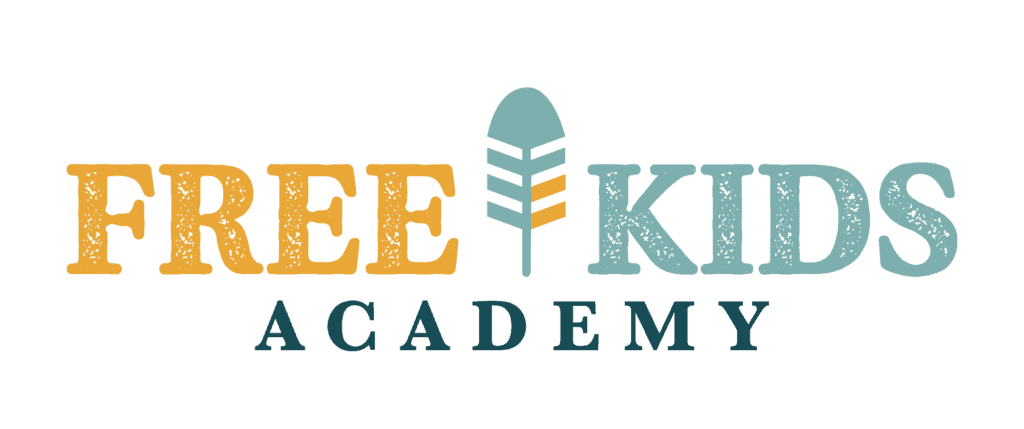FKA FAQ
Education Outside the Box! Education Outside the Box!
We aren’t your typical school, and we are happy about that. In fact, we love being different. We understand you may have some questions. Check out these frequently asked questions to help decide if Free Kids Academy is the right choice for your family.
FKA: We have consciously created our school for less than 100 children to attend. Due to our hybrid model, we may have more students, but less than 100 will be on campus at any given time.
Other: Schools in our area vary, but the closest public K-8 school has over 1,400 students.
Children need strong connections in their lives. Our enrollment is purposely smaller to encourage strong bonds within the classroom. We want children to form friendships that will last a lifetime instead of being shuffled around each year, hoping to be in a class with someone they know.
FKA: We will have up to six mixed-age classrooms for our K-8 students. Two or three grades will be together.
Other: Children are placed in the same age groups.
We believe life is best when it is more authentic. It’s natural to socialize with children of different ages. Younger children benefit from observing older children who serve as role models, while older children can develop confidence and compassion. Age segregation began in 1848, after the Prussian school model. Before then, children of various ages always learned together.
FKA: Education should be customized for each individual child. By lowering class sizes and engaging mentors, volunteers, and assistant teachers, our students get personalized attention.
Other: Most classrooms have one teacher in charge of instruction.
The age of a student doesn’t always equate to ability. Flexible groups work together based on the teachers’ ongoing assessments and curricular goals.
FKA: Themes are introduced in an organic manner, where content is interdisciplinary and explored in depth.
Other: Content is taught in segregated blocks of equal time. The depth of discovery is predetermined by the grade level expectations, and the focus is on covering a wide range of knowledge and memorizing facts.
Learning is more meaningful when it is holistic, and connections are made. Students experience a deeper innerstanding of knowledge while retention of skills and information increases.
FKA: We are focused on individual progress, not perfection. We assess student growth through evidence-based portfolios and class performance. Rankings or scores to label or compare are not necessary.
Other: Children are graded according to grade-level performance, comparing them to peers their age. Instruction is based on grade-level standards.
We see assessment as an ongoing, organic part of instruction. When a child struggles to understand something, we respond by changing our instructional techniques or going back to teach previous concepts if needed. If the child continues to lack understanding, we can wait until he or she is developmentally ready, or let it go. All children should feel successful.
FKA: We encourage your children’s free time at home to be spent with family.
Other: Children are expected to complete more work at home after a long day at school.
We respect home time for our students. It is a sacred time to relax, play, and learn life skills such as helping around the house and cooking. It’s a time to develop hobbies, exercise the body, and bond with family. When children are naturally motivated, they will most likely extend learning into their homes by reading books, experiments, art projects, and more. We want our students to be challenged by choice.
FKA: Our school day is just under six hours.
Other: A traditional school day is between seven to eight hours.
We focus on quality, purpose-driven instruction and believe our goals can be accomplished in this time. We want our students to be enthusiastic and well-rested.
FKA: Our extended day is a 1.5-hour program until 4 p.m.
Other: A conventional school usually ends aftercare around 6 p.m.
We want our students to have enough downtime at home with family. We also choose for our leaders to be well-rested and have quality time with their families.
FKA: Parents can choose a part-time schedule if they are homeschoolers. We can help you with this process if you need to transition from a public or private school.
Other: Students must attend full time.
We respect the continuum of homeschooling styles. Families can choose what they will do on their off days, from a structured curriculum to unschooling.
FKA: We teach spirituality. We define this as a journey of self-discovery where we remember our divine connections, our ability as creators, our limitless potential, and pursuit of our soul purpose. It is rooted in love, oneness, awareness, and freedom.
Other: Public schools leave out any mention or instruction of God or a higher power, and it is not encouraged to be discussed. Private schools with a religious affiliation typically teach one perspective based on the system of beliefs of that religion.
We embrace unity with all and encourage free will by teaching children to question and research. We focus on love: love of oneself, other humans, and the Earth, including its animals and plants.


